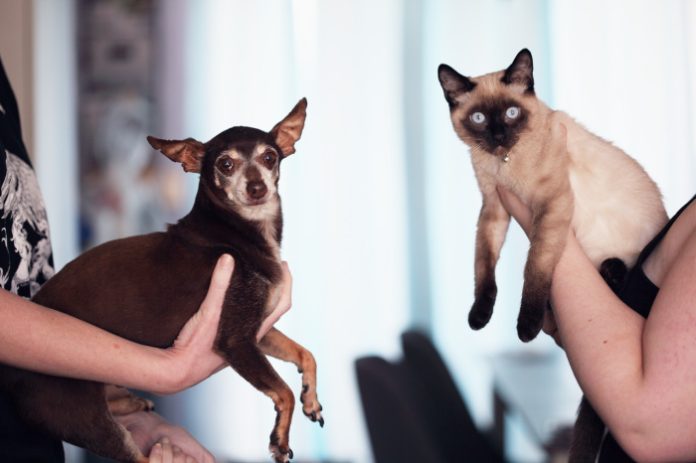When a couple decides to get divorced, one of the many decisions they have to make is what happens to their pets. This can be a complex issue with no easy answer when both parties are bonded with their pets. Divorce attorney Jennifer Abrams in Las Vegas, Nevada ensures her clients know the many factors that need to be considered: Who will take custody of the pet? Who will pay for vet bills? Will the pet be shared between both households? In this article, Jennifer Abrams discusses what you need to know about pets in a divorce.
In Nevada, Pets Are Considered “Personal Property” in a Divorce
When going through a divorce, it’s important to remember that pets are considered “personal property” under Nevada law. This means they will be subject to the same property division rules as any other marital asset. If both divorcing spouses can’t reach an agreement on who gets custody of the pet, the court will render a decision.
When making a decision, the court will consider factors such as:
- How and why the pet was acquired? Did both spouses adopt the pet from the rescue? Was it a gift from one spouse to the other? Does one spouse regularly volunteer his or her time to rescue and foster pets? Did one spouse adopt the pet from a friend or family member who could no longer care for it?
- Who is the named owner on acquisition and veterinarian records? While not necessarily determinative, especially if one spouse purchased the pet as a gift for the other, these records serve as indicia of ownership.
- Is the pet registered as a service animal for one spouse?
- Was the pet acquired for the children and are the children attached to the pet?
- Did the pet become one spouse’s pet over time? In other words, did one spouse effectively relinquish ownership rights and obligations to the other as a result of extensive travel for work or other absences?
If the pet belongs to the child(ren), it is possible that the pet will share the same custodial schedule as the child(ren) as children are generally permitted to freely transport their “belongings” from one parent’s home to the other.
Even though pets are treated as property under Nevada law, it is essential to keep in mind that pets are living beings and an important part of people’s lives; the well-being of the pet should be considered during a divorce.
When There Is More Than One Pet
If there are two pets, and one of them is determined to be the separate property of one spouse, the court may award the other pet to the other spouse. If it is shown that the pets are bonded, however, the court might not separate the two.
If one pet poses a risk of harm to the other, the court will likely award one to each spouse in the divorce.
How Domestic Violence May Impact the Disposition of the Pet
In Nevada, acts of violence against the family pet are considered “domestic violence” and may warrant an order of protection. When such an order of protection is issued, the abuser may be prohibited from any further contact with the pet.
The Best Interest of the Pet Should Be Your Number One Priority
Even though pets are treated as personal property in Nevada divorces, you should still argue for the best interest of the pet. For example, if the pet is elderly and very comfortable in the home where the pet has resided for many years, it may be best for the pet to live out his or her last years in the comfort of that home. If one spouse works long hours or lives in a place that does not lend itself to the pet’s needs (for example, a dog living in an apartment with no access to a backyard), it may be best for the pet to reside with the spouse who has a more pet-friendly home. Consider the age, health, and needs of the pet and which spouse can provide the best care for the pet, where the pet will be happiest, and how well the pet will adjust to a possible new home.
Many states are beginning to recognize pets as more than just personal property. Over the next several decades, we may see a change in the laws to take into consideration the best interests of the pet.
Final Thoughts
Pets are an important part of our lives, and we want to make sure they are taken care of no matter what happens. If you are going through a divorce, Jennifer Abrams says it is crucial to understand your rights and options when it comes to the custody of your pet. With a little planning and thought, you can make sure your pet is well taken care of no matter what happens. In many states, pets are considered property, and the court will consider who has custody of the pet, who bought the pet, and who has been taking care of the pet.
If you and your spouse agree to share custody of your pet, you may want to consider making a custody agreement that outlines who will have the pet during what times and how expenses will be divided. You may also want to consider giving up custody of your pet if it is in the pet’s best interest. It is vital to put your pet’s needs first and ensure they are well taken care of no matter what you decide.
Find a Home-Based Business to Start-Up >>> Hundreds of Business Listings.

















































